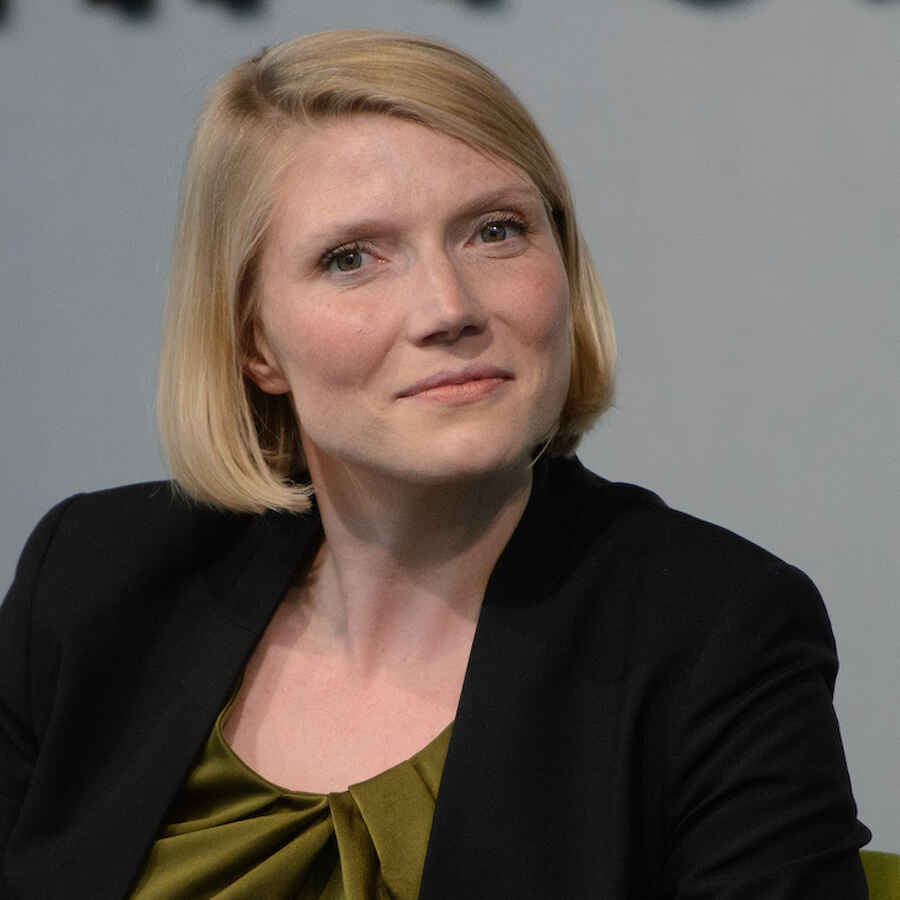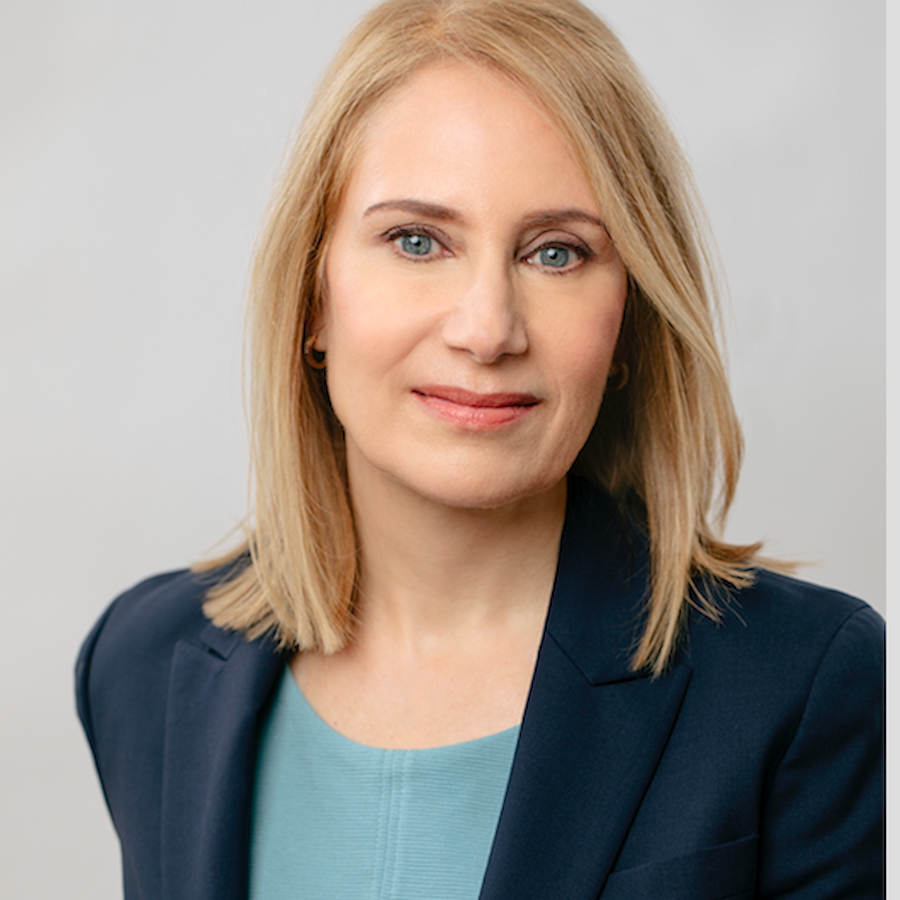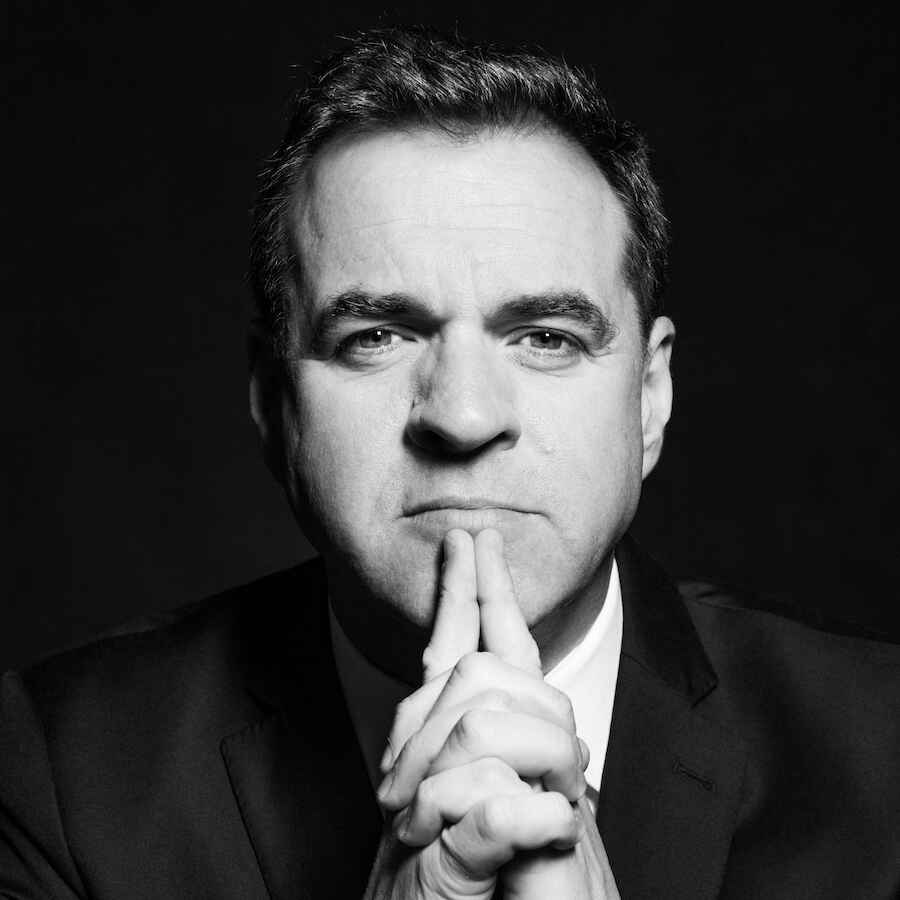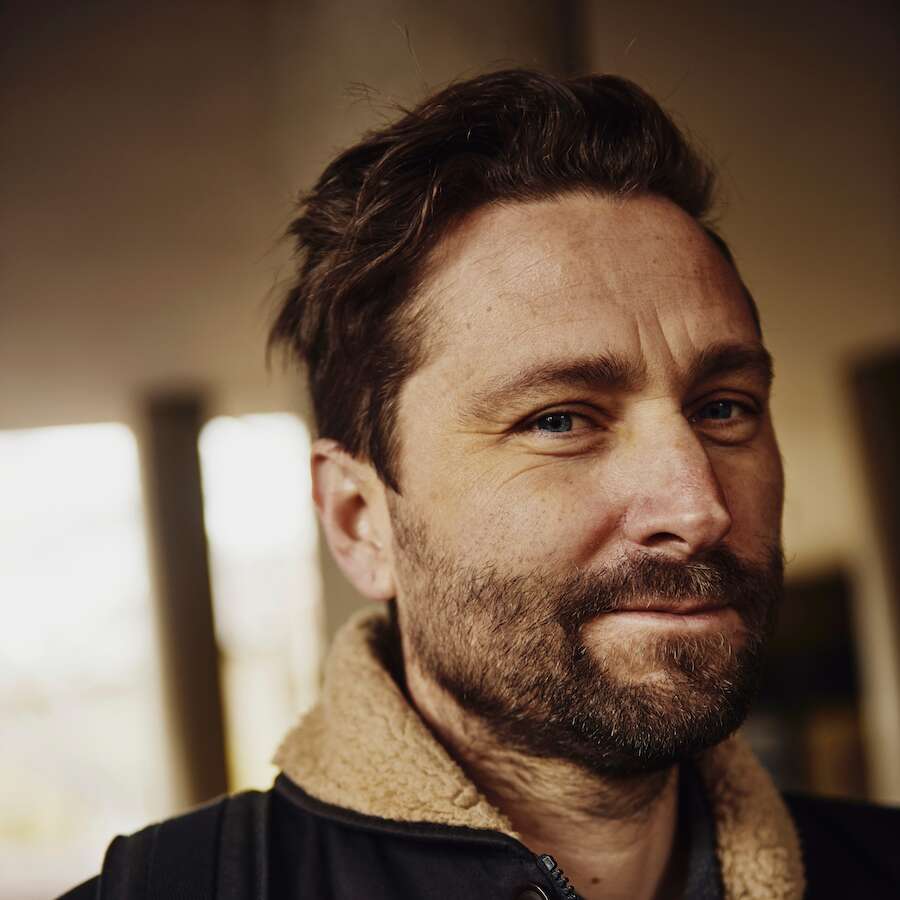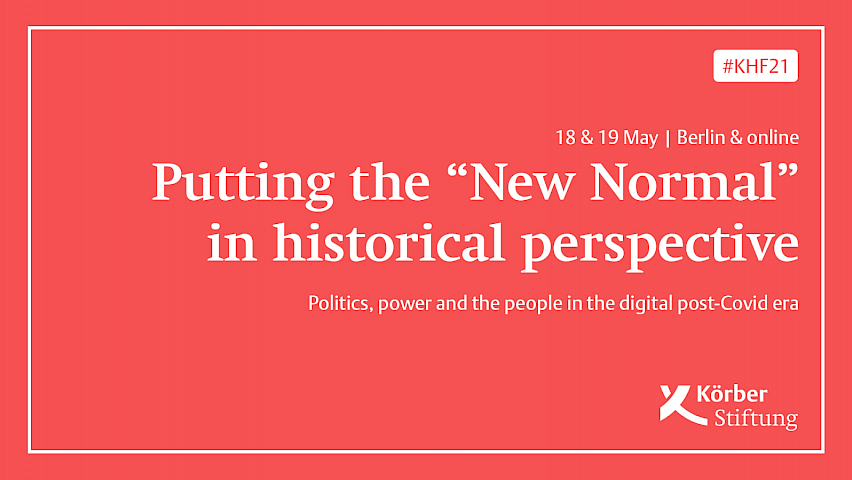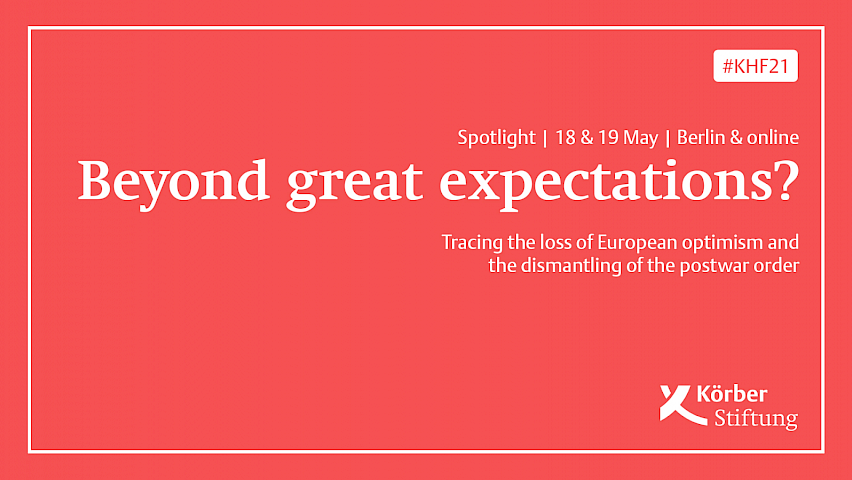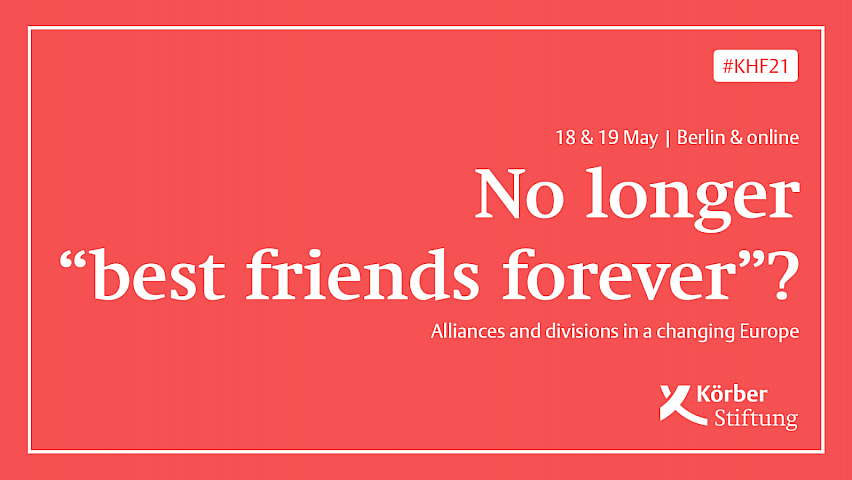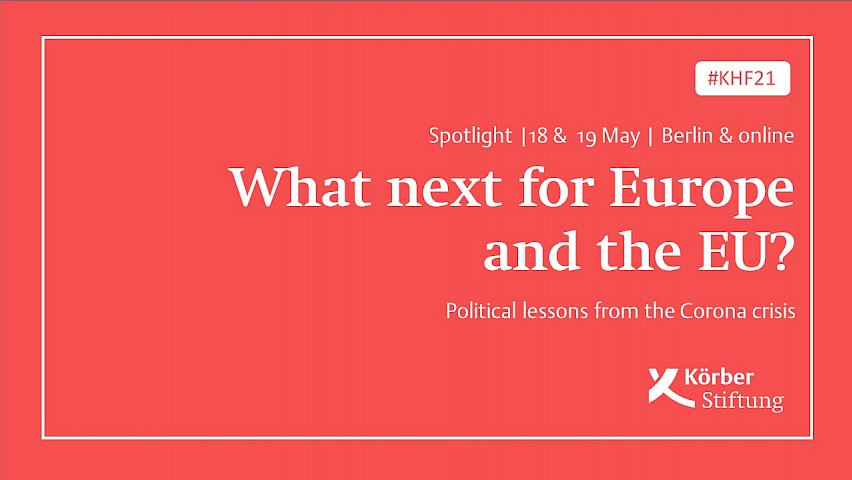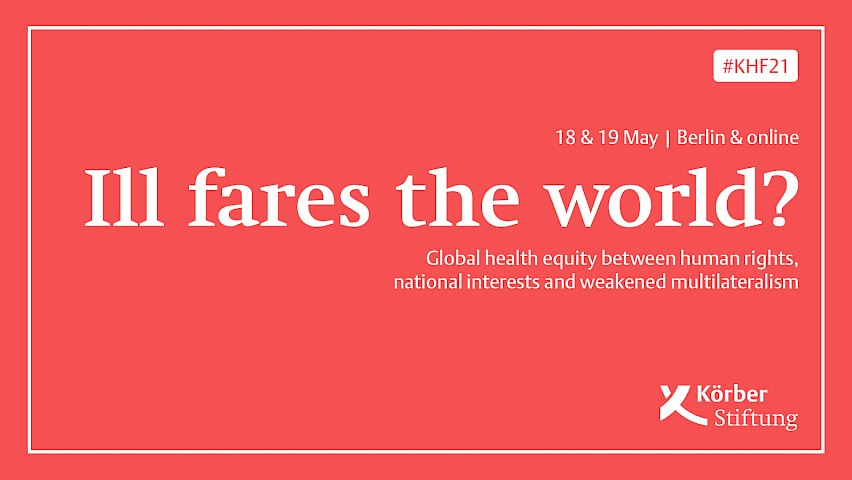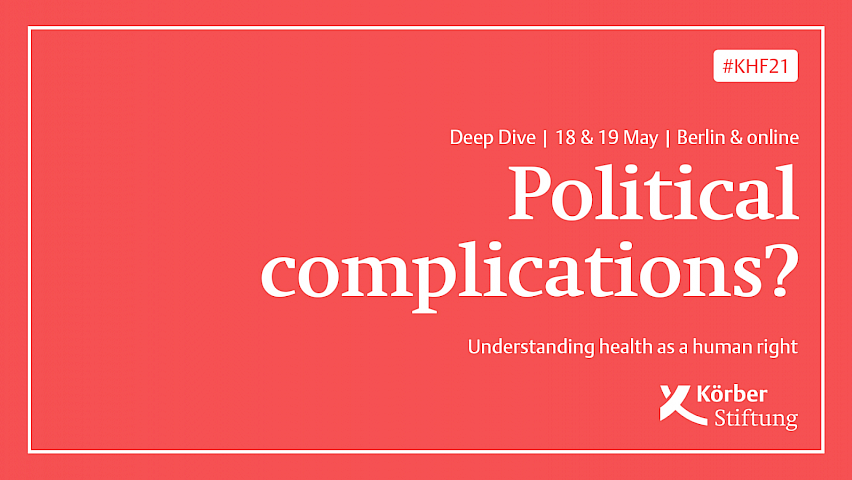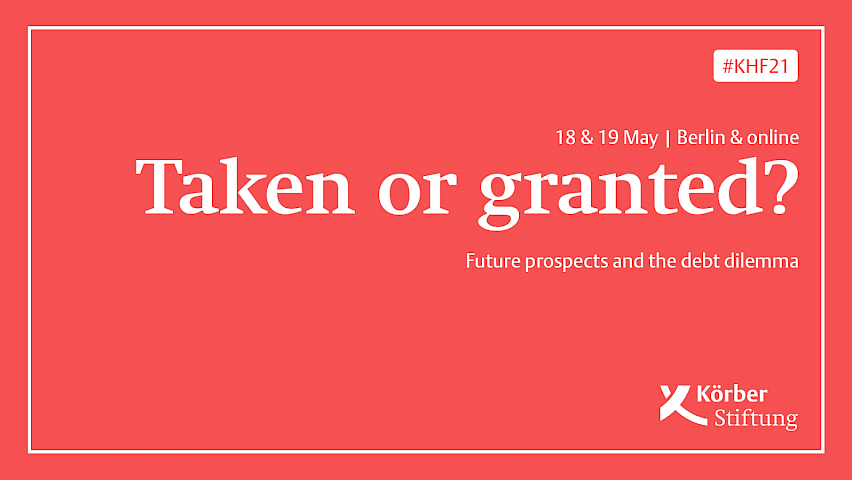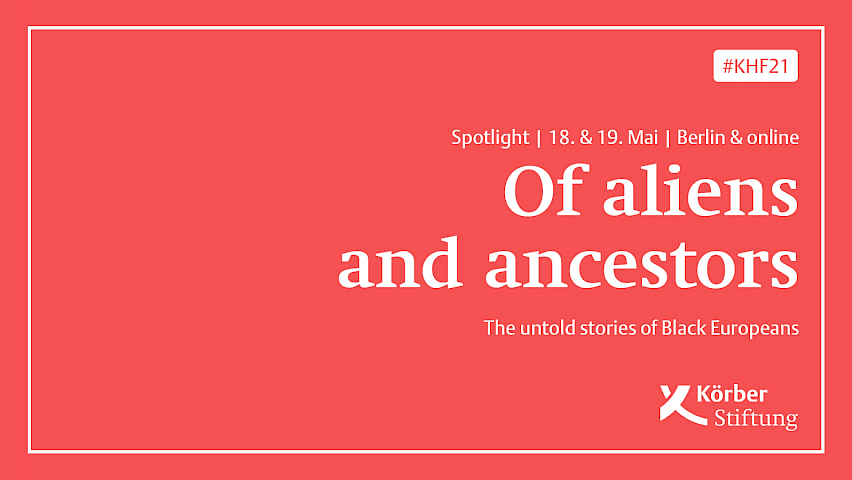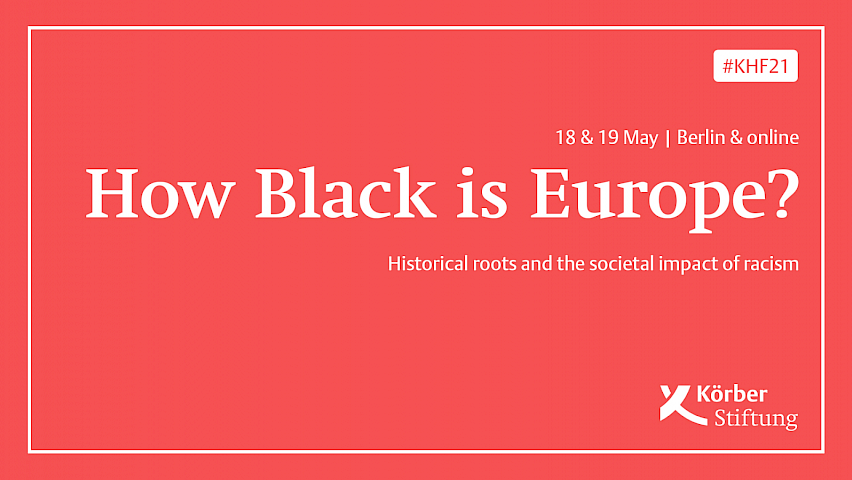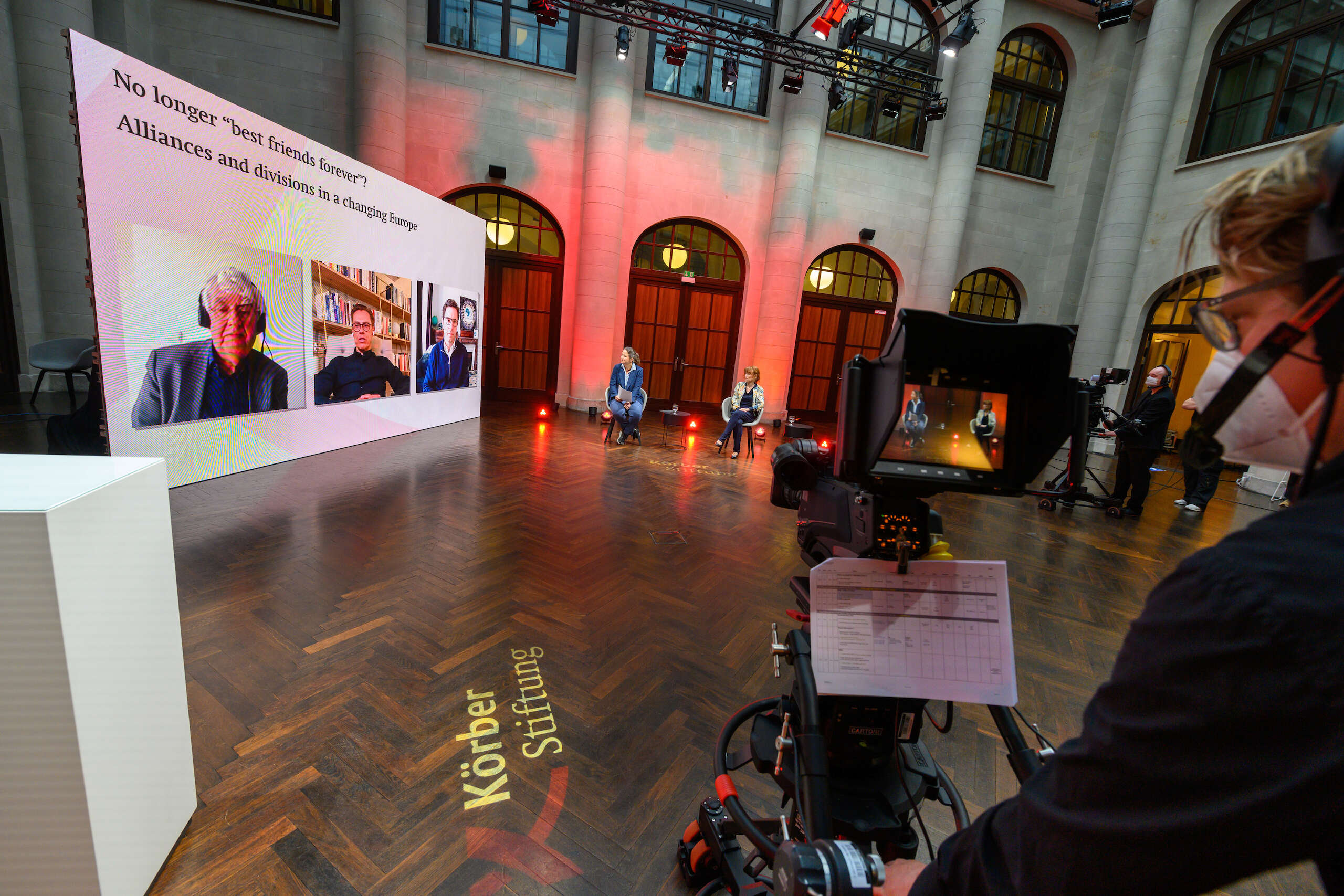
Photo: David Ausserhofer
Körber History Forum 2021
Putting Crisis in Context
Discussing today's crises and their implications for politics and society from a historical perspective was at the core of the first-ever digital #KHF21 on 18-19 May. Taking the disruptions of the fateful year 2020 as a point of departure, more than 40 esteemed international speakers and 300 invited guests discussed a broad range of timely questions such as:
What is needed to ensue political participation in digital societies? What has to be done to overcome the historic injustice of racism? And how can the challenge of global health equity be met on the basis of healthcare as a human right?
Images
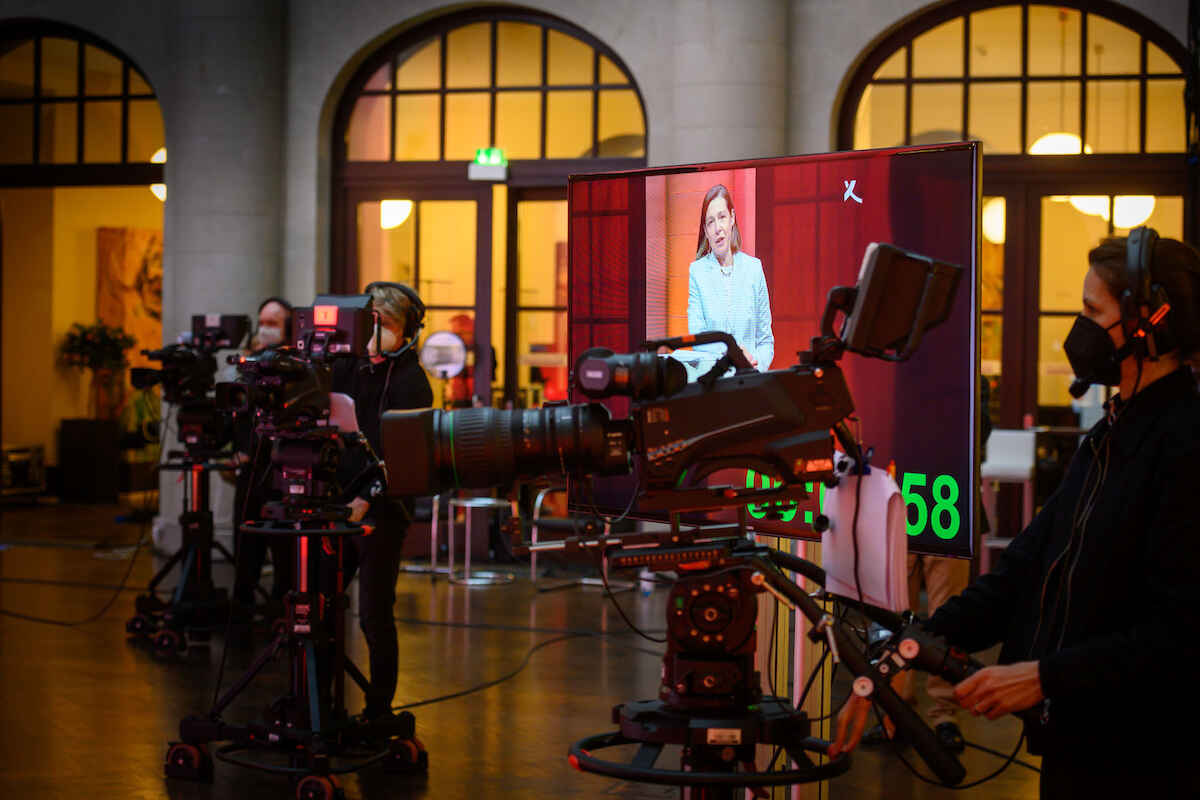
Photo: David Ausserhofer 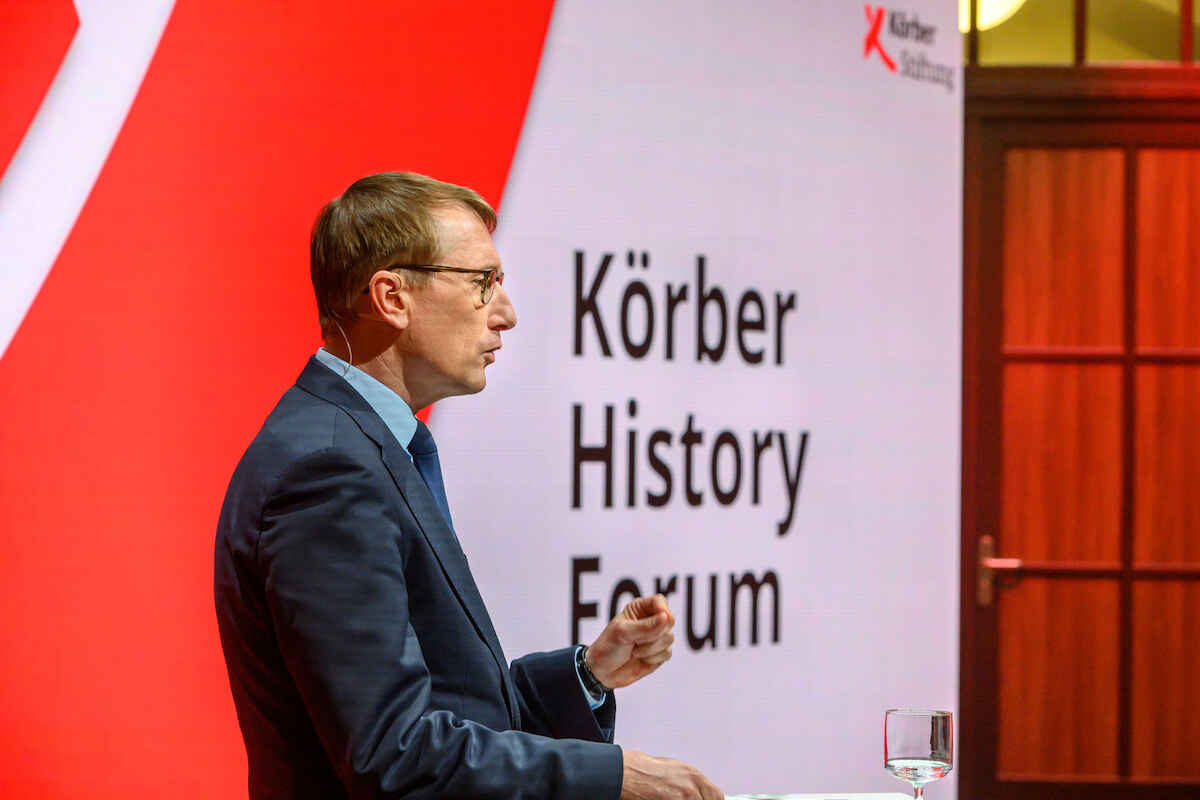
Photo: David Ausserhofer 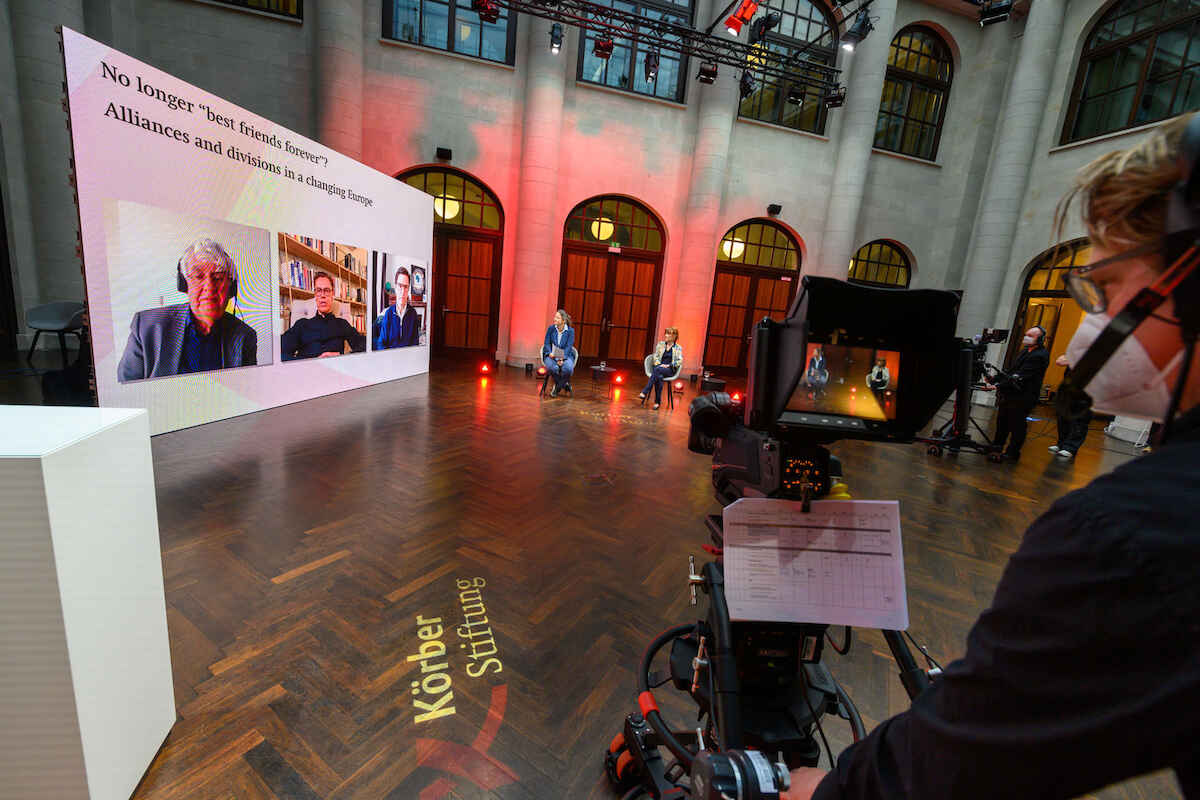
Photo: David Ausserhofer 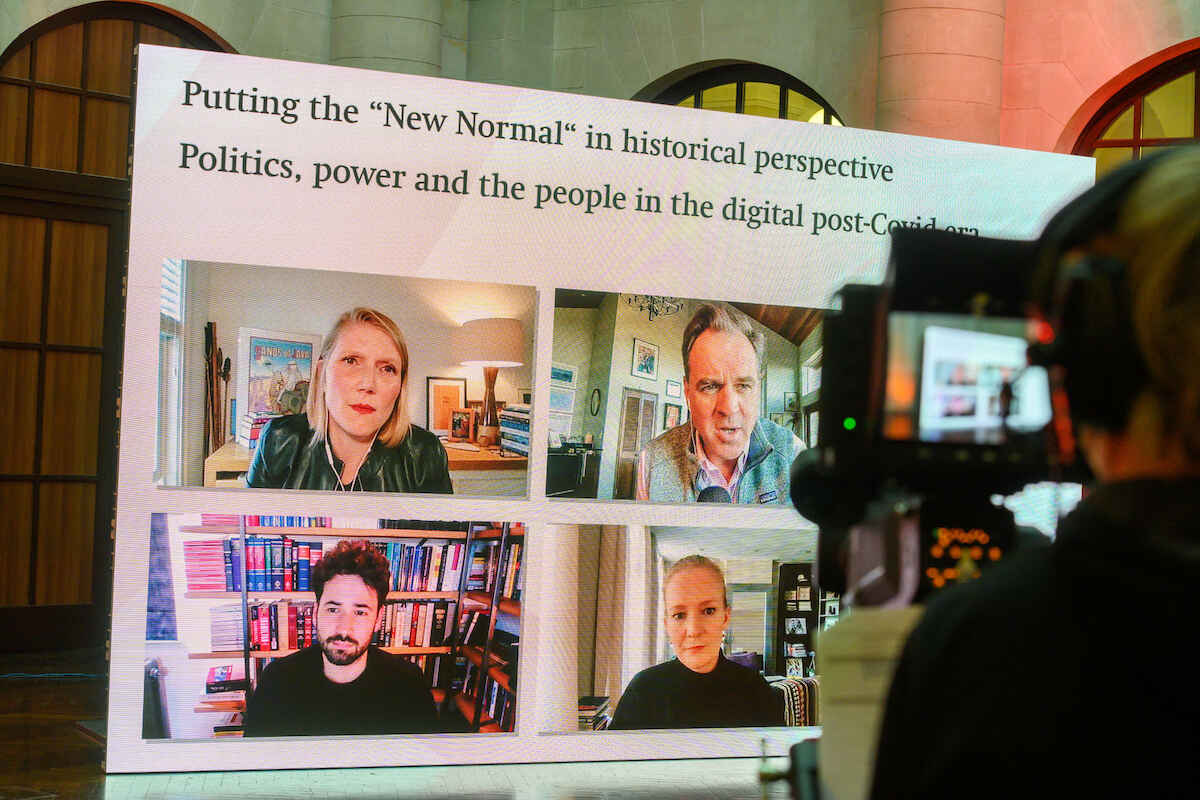
Photo: David Ausserhofer 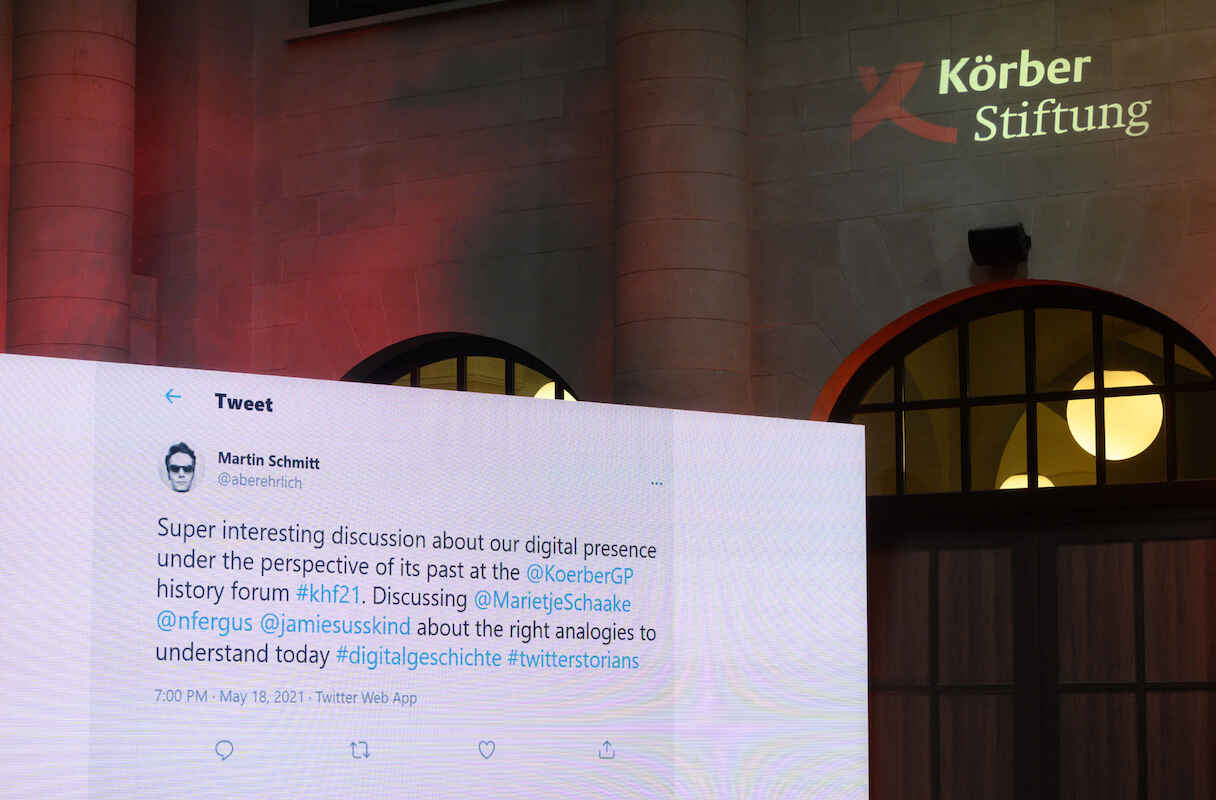
Photo: David Ausserhofer
Programme
Discussion: Politics, power and the people in the digital post-Covid era
The Corona pandemic has given the field of digital information technology and data-based analysis an unprecedented boost. At the same time, false and manipulated information in the virtual sphere has both undermined scientific and political discourse over the past years and weakened democratic institutions. Using data-based information to purposely steer opinion is not a new phenomenon but can be traced back to the era of the Cold War.
How does the digital public of today differ from social networks of the past? What is the impact of “big data” on democratic processes and institutions, how does the if/then logic of algorithms impact our lives and fortunes as societies? And what does this mean for freedom of opinion and democratic debating culture?
With Cathryn Clüver Ashbrook, Niall Ferguson, Marietje Schaake, Jamie Susskind
Discussion: Alliances and divisions in a changing Europe
At the turn of the millennium, Europe seemed a continent of great prospects. No longer divided, the scheduled Eastern expansion of the EU raised hopes for a common future in which the Franco-German engine would be complemented by the Weimar Triangle. However, the crises of 2008, 2015, and most recently 2020 broke up historic alliances and gave way to new, flexible coalitions.
How can the current architecture of alliances within the EU be understood against the backdrop of 20th century history? How have the Coronavirus and “the year that never happened” impacted political, economic, and social solidarity within Europe? And what can be learned from the “historic” Corona crisis for the future?
With Nora Bossong, Geert Mak, Ariane Reimers, Alexander Stubb, Justin Vaïsse
Discussion: Global health equity between human rights, national interests and weakened multilateralism
The Corona pandemic has not only brought historic challenges to health systems worldwide, but has also injected a new sense of urgency into the question of healthcare.
As an integral part of the global order that was established after 1945, what basis does international humanitarian law provide to guarantee equal access to healthcare? How have internationally documented and agreed legal standards been tested and scrutinised in the past and present? And how can international cooperation in both preventive and reactive measures of healthcare be balanced against national interests?
With Agnes Binagwaho, Mark Honigsbaum, Sven Stockrahm, Armin von Bogdandy, Charlie Weller
Discussion: Is it that simple? The allure of authoritarianism
The Corona pandemic and the political measures taken to contain it have reignited a debate on the “allure of the authoritarian” and the “temptation of populism”. The storm on the US Capitol, brandishing the imperial Reich flag on the stairs of the German Bundestag and the Gilets Jaunes movement in France illustrate a rejectionist sentiment towards democratically legitimated institutions and processes in some parts of the population and a growing sympathy towards authoritarian structures and ideologies.
What conditions have facilitated the rise of anti-democratic forces in the past? How do authoritarianism and populism currently influence politics? And how can we overcome the dangerous and socially numbing unease with institutional democratic politics and its actors?
With Ruth Ben-Ghiat, Jan-Werner Müller, Constanze Stelzenmüller
Discussion: Taken or granted? Future prospects and the debt dilemma
The challenges faced by the global economy in the “historic crisis year” of 2020 have renewed the debate on state fiscal interventionism and its impact on economic and social security. While circumstances have changed, the phenomenon of rising national debt recurs throughout history, especially in times of crisis.
How and to what end have states assumed debt in the past? Which requirements would apply for transnationally shared debt, for instance at European level, and what consequences must be considered? And who will foot the bill when public debt increases during times of crisis?
With Claudia Buch, Silvia Merler, Quinn Slobodian, Marc Beise
Discussion: How Black is Europe? Historical roots and the societal impact of racism
The #BlackLivesMatter movement has sparked a necessary and long-overdue debate about discrimination, marginalisation and racially-motivated violence faced by Black people, also in Europe.
Which blind spots do we need to account for in the context of colonial expansion and the notion of white supremacy? Which political, legal, economic, and cultural practices form the basis for structural racism encountered by People of Colour? And what can policymakers do to enable equal representation in the political sphere and in society?
With Fatima El-Tayeb, Momodou Malcolm Jallow, Olivette Otele, Christine Gerberding
